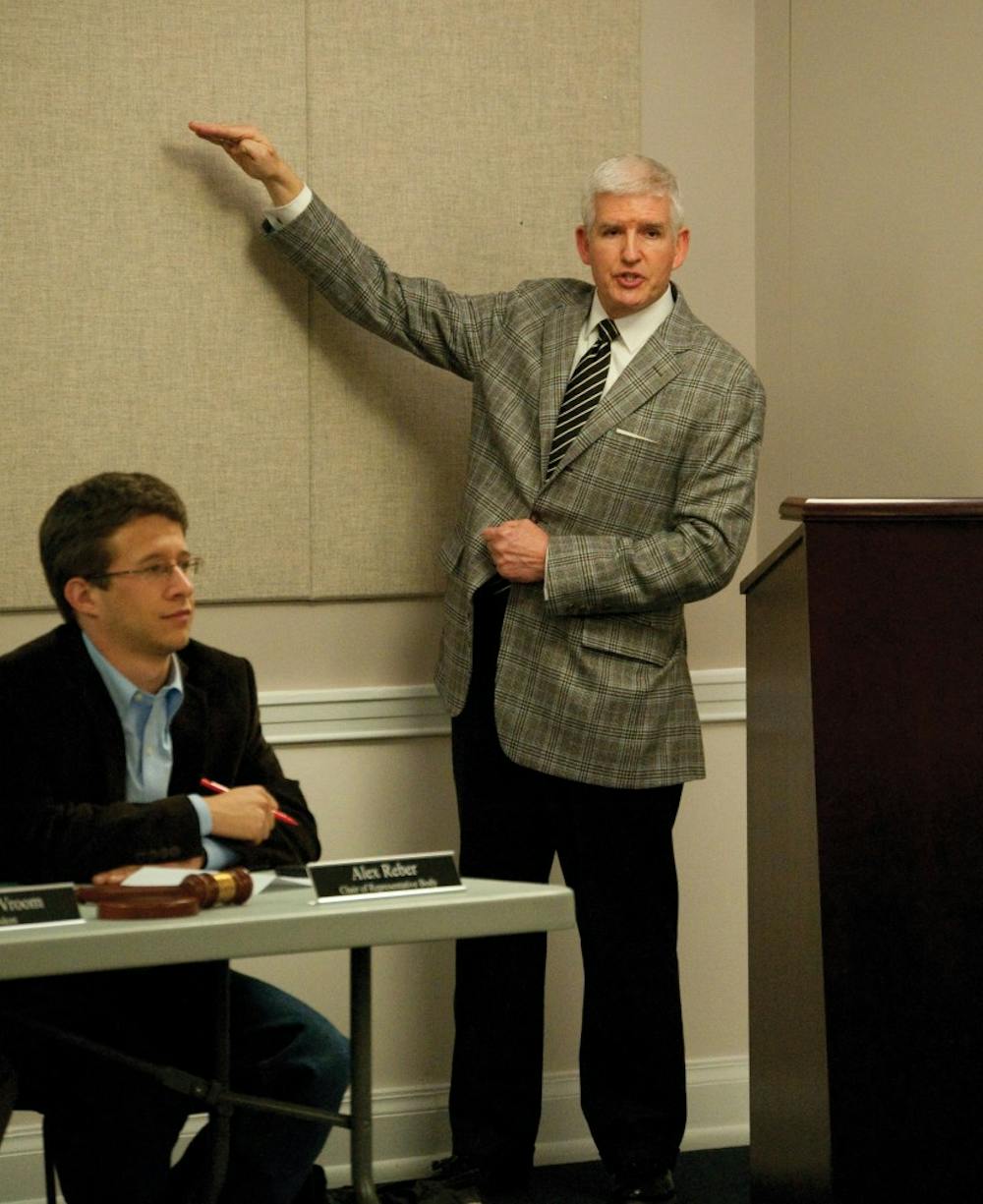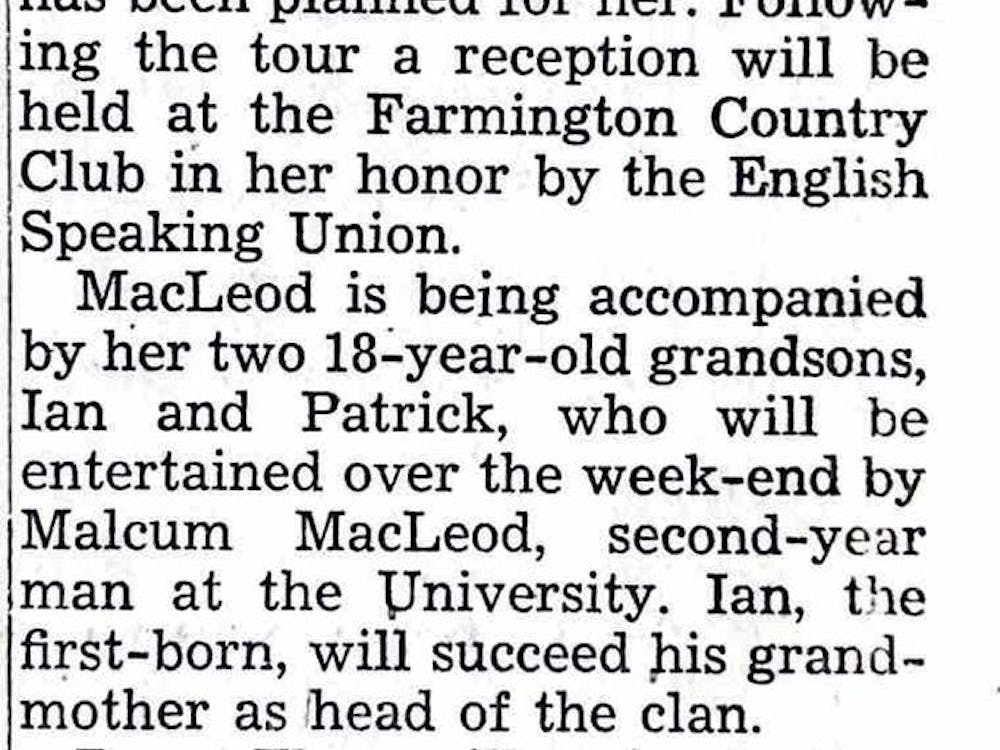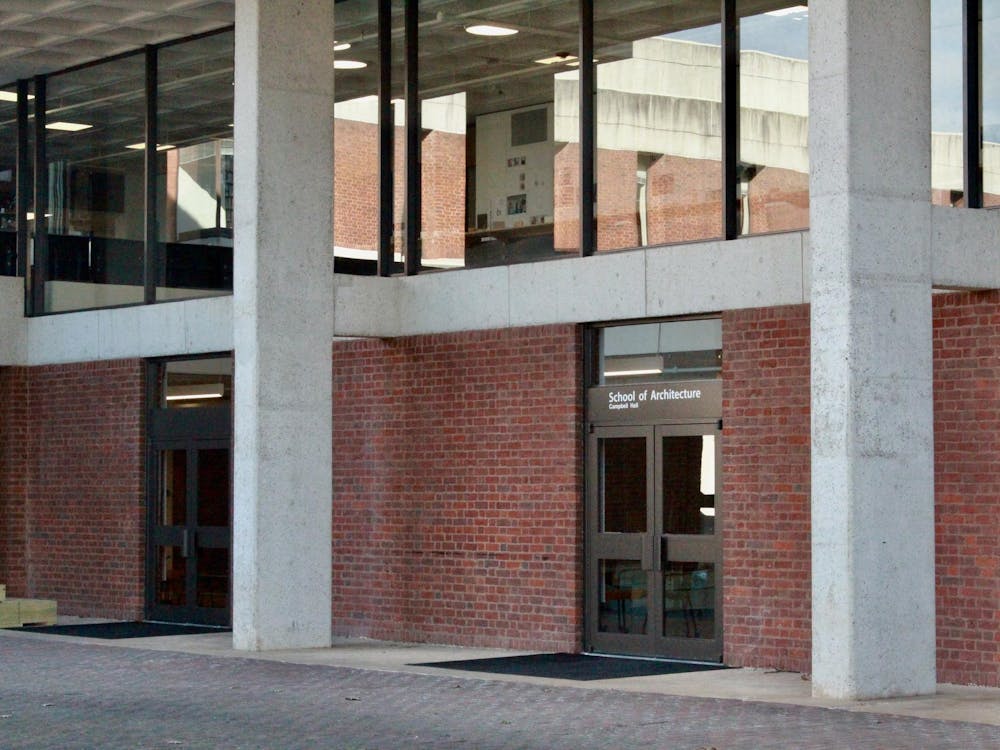University Dean of Students Allen Groves spoke at Student Council’s representative body meeting Tuesday evening, addressing lingering concerns about the sexual misconduct policy and recent incidents involving students.
Following changes made to the University’s sexual misconduct policy in 2011, Groves said it is important for people to know the expanded nature of the new legislation.
“Prior to summer 2011 there had been sexual assault and sexual misconduct … they were fairly nebulously defined,” he said. “Now it’s called sexual misconduct and under that umbrella there are a lot of things that can qualify as assault. Recent changes include an expansion of the policy to include sexual exploitation cases and the elimination of both geographic constraints and timeframes for reporting offenses, though the accused must still be a student at the time the complaint is filed.”
The University broadened its requirements for reporting sexual assault in July 2011, removing requirements for “clear and convincing evidence” that an assault had taken place, and adding unwanted sexual contact, including cyber communications, under the umbrella of misconduct.
Groves encouraged Council members to visit the University’s Sexual Violence Education and Resources website, which includes an outline of executive policy revisions, as one means of staying informed. He also outlined the current process for filing a complaint, saying, although the University has a formal process, he encourages students to go to the police who have powers not available to University administrators.
But officials should acknowledge how the student wants to proceed, he said. “We have to empower the students who are bringing the complaint to decide what they want to do, and we have to respect that,” Groves said.
Council members expressed concern about a recent incident on Grounds involving an alleged attempted abduction of a female University student by a dining hall employee.
Transfer student representative Erin Flanagan, a fourth-year College student, asked Groves about the lack of communication about the incident, particularly the decision not to notify students through email. Groves said though he could not comment on details of active investigations, it was ultimately the nature of the law that influenced the police decision.
The Clery Act — a federal statute that directs university police forces to notify students when a certain crime is committed at an education institution and the suspect remains at large, among other requirements — was not triggered in this case because the individual was quickly apprehended, he said.
“[The police] don’t want to be sending out emails all the time and have students become numb to it,” Groves said.
University Police Lieut. Melissa Fielding similarly said Sunday students were not informed of the incident because the assailant was expediently apprehended after the incident.
But Groves also noted there is room for improving communication to students. “I want to have the ability to send out notices to you even if the law isn’t triggered because I want you to be aware,” he said. “Candidly, I think we could have done better in the situation.”
Neil Branch, Council’s vice president of organizations and a third-year student enrolled in the Batten School and the College, mentioned a recent request made to the University sexual misconduct board to disclose statistics about incidents at the University. The request followed Council discussions at a previous meeting about the frequency of sexual misconduct cases on Grounds, as well as how best to address student concerns.
“The FOIA request was submitted several weeks ago — they said they need a few more days,” Branch said. “That would show the number of requests over the past 10 years … and the gender of those involved, if they’re willing to disclose that information.”
Related Articles:
Student’s self-defense training thwarts abduction
Dining employee had criminal past
Staying uninformed
—an initial version of this article said that a complainant must be a student, but this has been corrected to reflect that “the accused must still be a student at the time the complaint is filed.” A complainant can be a non-student.







